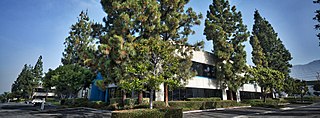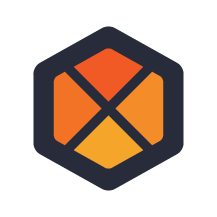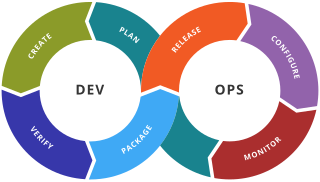
BMC Software, Inc. is an American multinational information technology (IT) services and consulting, and Enterprise Software company based in Houston, Texas.
CollabNet VersionOne is a software firm headquartered in Alpharetta, Georgia, United States. It was Founded by Tim O’Reilly, Brian Behlendorf, and Bill Portelli. CollabNet VersionOne products and services belong to the industry categories of value stream management, DevOps, agile management, application lifecycle management (ALM), and enterprise version control. These products are used by companies and government organizations to reduce the time it takes to create and release software.

Ranorex Studio is a GUI test automation framework provided by Ranorex GmbH, a software development company. The framework is used for the testing of desktop, web-based and mobile applications.
Electric Cloud, Inc. was a privately held, DevOps software company based in San Jose, CA. Founded in 2002, Electric Cloud was a provider of application release orchestration (ARO) tools, automating release pipelines and managing application life cycles. Electric Cloud's products included ElectricFlow and ElectricAccelerator.

Samsung SDS Co., Ltd., established in 1985 as a subsidiary of Samsung Group, is a provider of Information Technology (IT) services, including consulting, technical, and outsourcing services. SDS is also active in research and development of emerging IT technologies such as Artificial Intelligence (AI), Blockchain, Internet of Things (IoT) and outsourcing in engineering. In 2019, Samsung SDS reported a net profit of 750.4 billion won, an increase of 17.5% year-on-year. The company is estimated to have the 11th most valuable brand among global IT service companies, at US$3.7 billion as of January 2020. Samsung SDS has headquarters in South Korea and eight other overseas subsidiaries, one in America, Asia-Pacific, China, Europe, Latin America, Middle East, India, and Vietnam.

Parasoft is an independent software vendor specializing in automated software testing and application security with headquarters in Monrovia, California. It was founded in 1987 by four graduates of the California Institute of Technology who planned to commercialize the parallel computing software tools they had been working on for the Caltech Cosmic Cube, which was the first working hypercube computer built.
DevOps is a methodology in the software development and IT industry. Used as a set of practices and tools, DevOps integrates and automates the work of software development (Dev) and IT operations (Ops) as a means for improving and shortening the systems development life cycle.
Continuous testing is the process of executing automated tests as part of the software delivery pipeline to obtain immediate feedback on the business risks associated with a software release candidate. Continuous testing was originally proposed as a way of reducing waiting time for feedback to developers by introducing development environment-triggered tests as well as more traditional developer/tester-triggered tests.
Eggplant Software, Inc., was a software testing and monitoring company. Eggplant was a global company that served more than 650 enterprise customers in over 30 countries.
Application-release automation (ARA) refers to the process of packaging and deploying an application or update of an application from development, across various environments, and ultimately to production. ARA solutions must combine the capabilities of deployment automation, environment management and modeling, and release coordination.

BuildMaster is an application release automation tool, designed by the software development team Inedo. It combines build management and ARA capabilities to manage and automate processes primarily related to continuous integration, database change scripts, and production deployments, overall releasing applications reliably. The tool is browser-based and able to be used "out-of-the-box". Its feature set and scope puts it in line with the DevOps movement, and is marketed as "more than a release automatigs together the people, processes, and practices that allow teams to deliver software rapidly, reliably, and responsibly.” It's a tool that embodies incremental DevOps adoption.

Dynatrace, Inc. is a global technology company that provides a software observability platform based on artificial intelligence (AI) and automation. Dynatrace technologies are used to monitor, analyze, and optimize application performance, software development and security practices, IT infrastructure, and user experience for businesses and government agencies throughout the world.
Infrastructure as code (IaC) is the process of managing and provisioning computer data center resources through machine-readable definition files, rather than physical hardware configuration or interactive configuration tools. The IT infrastructure managed by this process comprises both physical equipment, such as bare-metal servers, as well as virtual machines, and associated configuration resources. The definitions may be in a version control system, rather than maintaining the code through manual processes. The code in the definition files may use either scripts or declarative definitions, but IaC more often employs declarative approaches.

Inedo is a software product company with headquarters in Berea, Ohio. It that makes Enterprise DevOps tools, namely BuildMaster, ProGet, and Otter. Inedo also publishes software-related products, including Release! the Game, Programming Languages ABC++, Code Offsets, and The Daily WTF.

A DevOps toolchain is a set or combination of tools that aid in the delivery, development, and management of software applications throughout the systems development life cycle, as coordinated by an organisation that uses DevOps practices.
Continuous configuration automation (CCA) is the methodology or process of automating the deployment and configuration of settings and software for both physical and virtual data center equipment.

Katalon Platform is an automation testing software tool developed by Katalon, Inc. The software is built on top of the open-source automation frameworks Selenium, Appium with a specialized IDE interface for web, API, mobile and desktop application testing. Its initial release for internal use was in January 2015. Its first public release was in September 2016. In 2018, the software acquired 9% of market penetration for UI test automation, according to The State of Testing 2018 Report by SmartBear.
Creatio is a global vendor of software to automate workflows and a CRM with no-code development.

ModelOps, as defined by Gartner, "is focused primarily on the governance and lifecycle management of a wide range of operationalized artificial intelligence (AI) and decision models, including machine learning, knowledge graphs, rules, optimization, linguistic and agent-based models". "ModelOps lies at the heart of any enterprise AI strategy". It orchestrates the model lifecycles of all models in production across the entire enterprise, from putting a model into production, then evaluating and updating the resulting application according to a set of governance rules, including both technical and business KPI's. It grants business domain experts the capability to evaluate AI models in production, independent of data scientists.
Checkmarx is an enterprise application security company headquartered in Atlanta, Georgia in the United States. Founded in 2006, the company provides application security testing (AST) solutions that embed security into every phase of the software development lifecycle (SDLC), an approach to software testing known as "shift everywhere."










